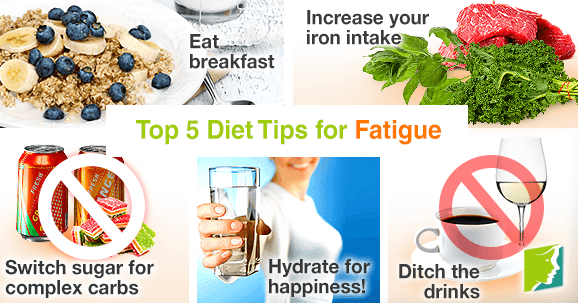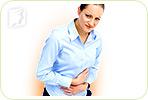Fatigue, or persistent tiredness, is becoming more and more common in people, with frequent complaints of poor sleep, lack of energy, and feelings of lethargy. As many causes of fatigue are connected with what and how people eat, diet can play an important role in combating the symptoms of fatigue. Keep reading below to find out the best diet tips for chronic tiredness.
Eat Breakfast
Despite the pervading belief that skipping meals, especially breakfast, can be an easy way to cut calories and lose weight, it is often a misnomer. Food gives the body energy, and people often feel tired in the morning because they have not given their body sufficient nourishment. Good examples of a filling breakfast include porridge, wholegrain cereals, and whole-wheat toast or if you cannot stomach too much, then a banana is a quick, easy, and healthy snack that will keep you going until lunch. Start your day the healthy way with breakfast!
Up the Iron Intake
One of the biggest underlying causes of fatigue is iron deficiency (anemia). Women and young people are much more likely to suffer from this, and it can lead to chronic tiredness, paleness, and lethargy. Iron is generally found in red meat and dark leafy green vegetables such as spinach, kale, broccoli, and Chinese cabbage (bok choi). Including these in your diet, even in small amounts, will help combat an iron deficiency and hopefully bolster flagging energy levels associated with the condition.
Slow Burn Starches, Not Sugar
Cutting down on sugar is one of the best methods of combating tiredness, as it is often the reason for wavering energy levels. While a sugar fix will provide an immediate energy rush initially, the effect doesn't last and quickly leads to a massive slump resulting in tiredness and irritability.
To keep energy levels (and general health) at a good level, it is best to replace sugar with starchy foods that release their energy slowly throughout the day. These complex carbohydrates include pulses and most unrefined grains such as whole-wheat pasta and brown rice, as well as wholegrain cereals like oats. Consuming these foods as part of a balanced diet will help avoid the constant need for sugary snacks to top up energy levels and therefore keep fatigue at bay.
Hydrate for Happiness!
This is an oft repeated diet tip for almost every ailment and it is because it works wonders. Water makes up about 70% of the human body and is essential for life, but most people do not drink the recommended daily amount, or rely on other sources of hydration such as juice, tea, coffee or other flavored beverages. Dehydration can play a big part in fatigue, so keeping water levels topped up throughout the day will help keep tiredness at bay.
Ditch the Drinks
While many people feel they cannot function in the morning without a mandatory cup of coffee or sleep at night without a glass of wine before bed, increasing research has shown that both of these drinks contribute to fatigue and harm sleep quality.
Diet has long been shown to have a big impact on conditions such as fatigue, so along with these tips, it is helpful to bear in mind that a generally balanced diet combined with regular physical activity tends to produce the most health benefits. Other issues that can contribute to fatigue are stress and certain antidepressant medications. If you make all the right lifestyle changes and you are still experiencing unreasonable levels of tiredness, make an appointment to see your doctor and find out more.
Sources
- Better Health Channel. (2012). Fatigue Fighting Tips. Retrieved January 8, 2015, from http://www.betterhealth.vic.gov.au/bhcv2/bhcarticles.nsf/pages/Fatigue_fighting_tips
- National Health Service UK. (2013). The energy diet. Retrieved January 8, 2015, from http://www.nhs.uk/Livewell/tiredness-and-fatigue/Pages/energy-diet.aspx
- National Health Service UK. (2013). Self-help tips to fight fatigue. Retrieved January 8, 2015, from http://www.nhs.uk/Livewell/tiredness-and-fatigue/Pages/self-help-energy-tips.aspx
- National Institute of Health. (2014). Fatigue: MedlinePlus Medical Encyclopedia. Retrieved January 8, 2015, from http://www.nlm.nih.gov/medlineplus/fatigue.html




